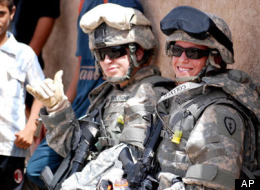According to www.dictionary.com, police are "an organized civil force for maintaining order, preventing and detecting crime, and enforcing the laws". In New York City, police are in charge of public school security, making schools there much safer. However, according to an editorial I read ("Over-Punishment in Schools"), there has been growing concern from juvenile justice advocates about the policies and circumstances in which children are being arrested. In some cases, they feel that the police are arresting and criminalizing children for behavior that was dealt with principals, parents, and guidance counselors, in the past. In many cities, school officials have identified the problem of "over policing". Juvenile justice advocates feel that "over policing" in schools has a negative affect on students because those who are arrested or singled out by the criminal justice system in school have a greater risk of dropping out of school or later on in life having issues with the law. Furthermore, the article says that most of these students are either Black or Hispanic, and many have emotional or learning disabilities.
The solution lawmakers are trying is the new Student Safety Act. The act is still a draft bill, but its main points would allow teachers, parents, and students to file complaints against security officers working at school, and "The draft bill would require police and education officials to file regular reports that would show how suspensions and other sanctions affect minority children, children with disabilities and other vulnerable groups".
As I thought about this article, I wondered whether or not it was right that the police were involved at school. Clearly, they provided safety for students which I think is extremely important, especially in neighborhoods where gangs are prevalent. However, I feel that the criminal justice system and the school disciplinary system should be separate. It isn't fair for a student if they could be in trouble with the police for walking without a hall pass or talking back to a teacher (examples given in the article). In those situations, it should be on the principal or dean to decided what the punishment should be. Perhaps a warning or detention.
What do you think? To what extent should police be involved in school discipline and security?
Picture from: http://www.impactlab.com/wp-content/uploads/2009/03/police-car.JPG



